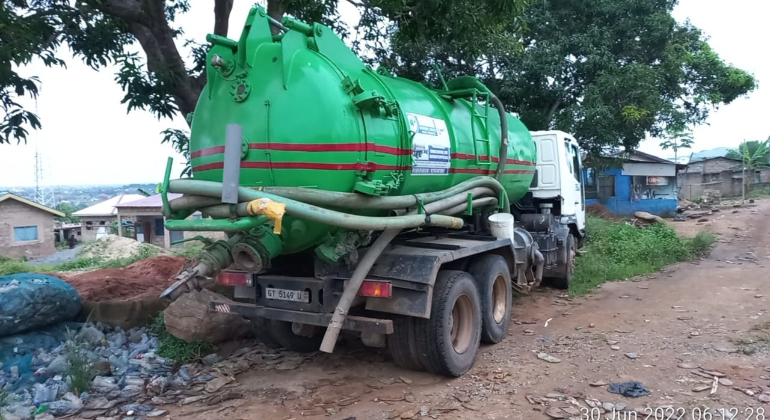Nsawam Ghana

Nsawam Ghana
Mon - Sat 8:00 am to 6:00 pm
Have any questions?
+233 24 340 7891
Waste management is a critical issue that affects every corner of the world. In Ghana, like many other developing nations, waste management presents a unique set of challenges and opportunities. With a growing population and urbanization, waste generation has increased significantly, making it imperative to address the issue in a sustainable and responsible manner. In this blog post, we will explore the challenges of waste management in Ghana, the progress made in recent years, and some sustainable solutions for a cleaner and healthier environment.
Despite these challenges, Ghana has made notable progress in waste management:
Recycling Initiatives:Recycling programs are emerging in various cities. Organizations and individuals are increasingly recognizing the value of recycling and participating in such initiatives.
Public Awareness Campaigns:Government and non-governmental organizations are actively engaged in public awareness campaigns to educate citizens about the importance of proper waste management.
Waste-to-Energy Projects: Ghana is exploring waste-to-energy solutions, where waste is converted into electricity, reducing the burden on landfills and providing a sustainable energy source.
Investment in Infrastructure: Ghana needs to invest in waste collection and disposal infrastructure. This includes building more efficient waste collection systems and upgrading existing landfill sites.
Promotion of Recycling: Encouraging recycling through awareness campaigns and offering incentives for recycling can significantly reduce the amount of waste going to landfills.
Waste Segregation: Implementing waste segregation at the source, where households and businesses separate their waste into recyclables and non-recyclables, can streamline the recycling process.
Community Participation: Involving communities in waste management decisions and solutions is essential. Community-driven initiatives can be more effective and sustainable.
Waste-to-Energy Projects: Expanding waste-to-energy projects can help in both waste reduction and energy generation, contributing to sustainable development.
Waste management in Ghana is a complex issue, but it is not insurmountable. With the right strategies, investments, and a collective effort, Ghana can improve its waste management practices. This will not only lead to a cleaner and healthier environment but also create economic opportunities and contribute to sustainable development. As awareness grows and more people adopt responsible waste management practices, the future of waste management in Ghana looks promising.
2 Comments
Kevin Martin
I enjoyed reading this article. Will definitely come back for more
Sarah Albert
Nice one there. Good to have some knowledge about an African country